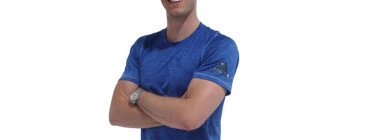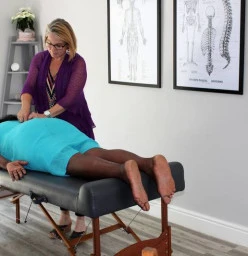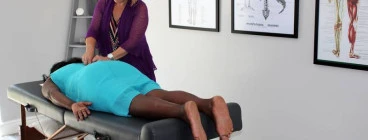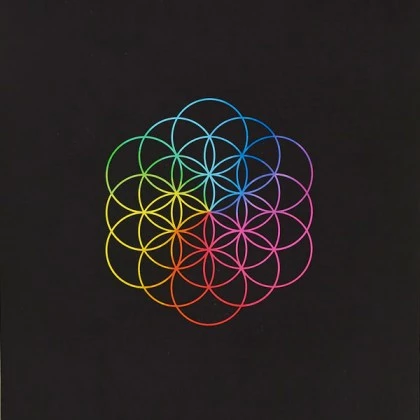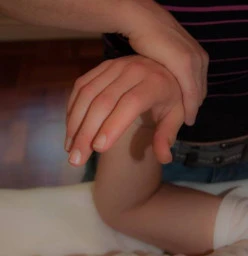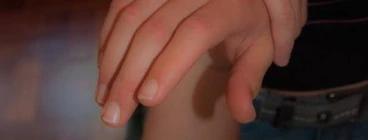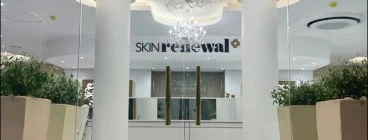- 21 Kendal Road, Diep River, Diep River 7945, Western Cape
- 10-20 km from Rocklands
- Business can travel to you
- Overall rating: 5.0 (7 reviews)
- Awards: #1 Most Popular in Cape Town Metropolitan for 2024
Bodyworks - Rocklands (7785)
Cape Flats / Mitchells Plain, Cape Town Metropolitan, Western Cape
No exact matches found within 5km.
Other related businesses in and around Rocklands (within 20km)
Welcome to Zen Wellness, your sanctuary for holistic well-being and transformative personal growth. We offer a versatile blend of services, including counselling, bodywork, movement, energy work, and life coaching. Each modality is thoughtfully designed to support your unique journey towards profound transformation. Our counselling services provide a compassionate environment for introspection, empowering you with insights and emotional resilience tailored to your personal challenges. Bodywork... Read more
- 59 Belvedere Road, Claremont 7708, Western Cape
- 10-20 km from Rocklands
LAMELLE LUMINOUS GLOW EXCLUSIVE DEAL R2430.00
Validity: from 01 Apr 2025 to 30 Apr 2025
Give your skin the radiance it deserves with our limited-time Lamelle Luminous Glow Exclusive Deal. When you purchase Lamelle Luminesce Rich and Lamelle Correctives Brighter Serum, you’ll receive a FREE Lamelle Luminesce Brightening Cleanse 125ml, saving more than R300. This bundle is your complete routine for achieving luminous, healthy-looking skin. It is perfect for anyone dealing with uneven skin tone, hyperpigmentation, melasma, or dull skin. Why Choose the Lamelle Luminous Glow Bundle? This exclusive deal combines three of Lamelle’s most effective brightening products. These products target pigmentation, skin discolouration, and dullness while nourishing and restoring your skin barrier. 1 x Lamelle Luminesce Rich: Perfect for dry or mature skin types, this rich moisturiser restores skin hydration, repairs the skin barrier, and visibly improves skin tone. 1 x Lamelle Correctives Brighter Serum: A powerful serum designed to safely lighten hyperpigmentation without irritation or sun sensitivity. Your Free Gift 1 x Lamelle Luminesce Brightening Cleanse (125ml): A gentle yet effective foaming cleanser suitable for all skin types, especially those with pigmentation or sun damage. Who Is This Bundle For? • Anyone with melasma, sun spots, age spots, or uneven skin tone • People looking for hydrating skincare for pigmentation • Individuals with dry or mature skin needing barrier support • Those wanting a non-irritating and effective brightening solution Don't miss this chance to save over R300 and transform your skincare routine with this doctor-developed, pigmentation-focused bundle from Lamelle. Achieve a radiant, even-toned complexion – naturally. Order now and enjoy FREE delivery on your bundle! Lamelle Luminous Glow Exclusive Deal is available between 1-30 April 2025 or while stock lasts. Key Ingredients: Peptides, Ceramide-P, Niacinamide, Arbutin, Ferulic acid, Turmeric Plant Extract
Biosync Fitness is a Personal Training service offered in the Claremont area by Cameron Tonkin. You must be a member of Virgin Active in order to participate in this service. I am a qualified Personal Fitness Training and Sports Conditioning Professional. I approach training from a holistic perspective with an emphasis on correcting posture and establishing a solid foundation for exercise. I can help you reach your goals with a routine that's both realistic and rewarding. I offer: Personal... Read more
LAMELLE LUMINOUS GLOW EXCLUSIVE DEAL R2430.00
Validity: from 01 Apr 2025 to 30 Apr 2025
Give your skin the radiance it deserves with our limited-time Lamelle Luminous Glow Exclusive Deal. When you purchase Lamelle Luminesce Rich and Lamelle Correctives Brighter Serum, you’ll receive a FREE Lamelle Luminesce Brightening Cleanse 125ml, saving more than R300. This bundle is your complete routine for achieving luminous, healthy-looking skin. It is perfect for anyone dealing with uneven skin tone, hyperpigmentation, melasma, or dull skin. Why Choose the Lamelle Luminous Glow Bundle? This exclusive deal combines three of Lamelle’s most effective brightening products. These products target pigmentation, skin discolouration, and dullness while nourishing and restoring your skin barrier. 1 x Lamelle Luminesce Rich: Perfect for dry or mature skin types, this rich moisturiser restores skin hydration, repairs the skin barrier, and visibly improves skin tone. 1 x Lamelle Correctives Brighter Serum: A powerful serum designed to safely lighten hyperpigmentation without irritation or sun sensitivity. Your Free Gift 1 x Lamelle Luminesce Brightening Cleanse (125ml): A gentle yet effective foaming cleanser suitable for all skin types, especially those with pigmentation or sun damage. Who Is This Bundle For? • Anyone with melasma, sun spots, age spots, or uneven skin tone • People looking for hydrating skincare for pigmentation • Individuals with dry or mature skin needing barrier support • Those wanting a non-irritating and effective brightening solution Don't miss this chance to save over R300 and transform your skincare routine with this doctor-developed, pigmentation-focused bundle from Lamelle. Achieve a radiant, even-toned complexion – naturally. Order now and enjoy FREE delivery on your bundle! Lamelle Luminous Glow Exclusive Deal is available between 1-30 April 2025 or while stock lasts. Key Ingredients: Peptides, Ceramide-P, Niacinamide, Arbutin, Ferulic acid, Turmeric Plant Extract
My personal BSR journey started 15 years ago. My sporting history included surfing, dancing and bootcamp, which together with a stressful job, going through a divorce and raising my young children, put a tremendous strain on my body from a mechanical and emotional perspective. I suffered intense lower back pain, numb feet, tingling hands and debilitating depression. My lower back pain became so severe that I was advised to not do any sport and definitely NOT to dance! Imagine my amazement when... Read more
Registered Therapeutic Reflexology. Benefits of Reflexology: Improves stress related conditions - Headaches, Constipation etc. Immune Boosting Improves sleep quality Detox the body Balances the body , mind and soul. Very effective for pain relief Helps with neuropathy and can help reduce the side effects of Cancer Treatments. Improves circulation which is beneficial for diabetes. Read more
The 'Breathing Room' is a private Wellness practice situated in Cape Town I am trained in Specialised Kinesiology, Systemic/Family Constellations and as an End of Life Companion/Doula. In our work together, I aim to balance body, mind, heart and essence towards the integration and unfolding of all your elements. Knowing that we can live in good relation with ourselves, each other, the Earth and the Sacred permeates my being and work. By appointment only. Please call during office hours... Read more
LAMELLE LUMINOUS GLOW EXCLUSIVE DEAL R2430.00
Validity: from 01 Apr 2025 to 30 Apr 2025
Give your skin the radiance it deserves with our limited-time Lamelle Luminous Glow Exclusive Deal. When you purchase Lamelle Luminesce Rich and Lamelle Correctives Brighter Serum, you’ll receive a FREE Lamelle Luminesce Brightening Cleanse 125ml, saving more than R300. This bundle is your complete routine for achieving luminous, healthy-looking skin. It is perfect for anyone dealing with uneven skin tone, hyperpigmentation, melasma, or dull skin. Why Choose the Lamelle Luminous Glow Bundle? This exclusive deal combines three of Lamelle’s most effective brightening products. These products target pigmentation, skin discolouration, and dullness while nourishing and restoring your skin barrier. 1 x Lamelle Luminesce Rich: Perfect for dry or mature skin types, this rich moisturiser restores skin hydration, repairs the skin barrier, and visibly improves skin tone. 1 x Lamelle Correctives Brighter Serum: A powerful serum designed to safely lighten hyperpigmentation without irritation or sun sensitivity. Your Free Gift 1 x Lamelle Luminesce Brightening Cleanse (125ml): A gentle yet effective foaming cleanser suitable for all skin types, especially those with pigmentation or sun damage. Who Is This Bundle For? • Anyone with melasma, sun spots, age spots, or uneven skin tone • People looking for hydrating skincare for pigmentation • Individuals with dry or mature skin needing barrier support • Those wanting a non-irritating and effective brightening solution Don't miss this chance to save over R300 and transform your skincare routine with this doctor-developed, pigmentation-focused bundle from Lamelle. Achieve a radiant, even-toned complexion – naturally. Order now and enjoy FREE delivery on your bundle! Lamelle Luminous Glow Exclusive Deal is available between 1-30 April 2025 or while stock lasts. Key Ingredients: Peptides, Ceramide-P, Niacinamide, Arbutin, Ferulic acid, Turmeric Plant Extract








